dummy slide
Spare Cores introduction
and project updates
Gergely Daróczi
Jan 30, 2025
Slides: sparecores.com/talks
Press Space or click the green arrow icons to navigate the slides ->
>>> from spare_cores import why
Data Science / Machine Learning batch jobs:
- run SQL
- run R or Python script
- train a simple model, reporting, API integrations etc.
- train hierarchical models/GBMs/neural nets etc.
>>> from spare_cores import why
Data Science / Machine Learning batch jobs:
- run SQL
- run R or Python script
- train a simple model, reporting, API integrations etc.
- train hierarchical models/GBMs/neural nets etc.
Scaling (DS) infrastructure.
>>> from spare_cores import why
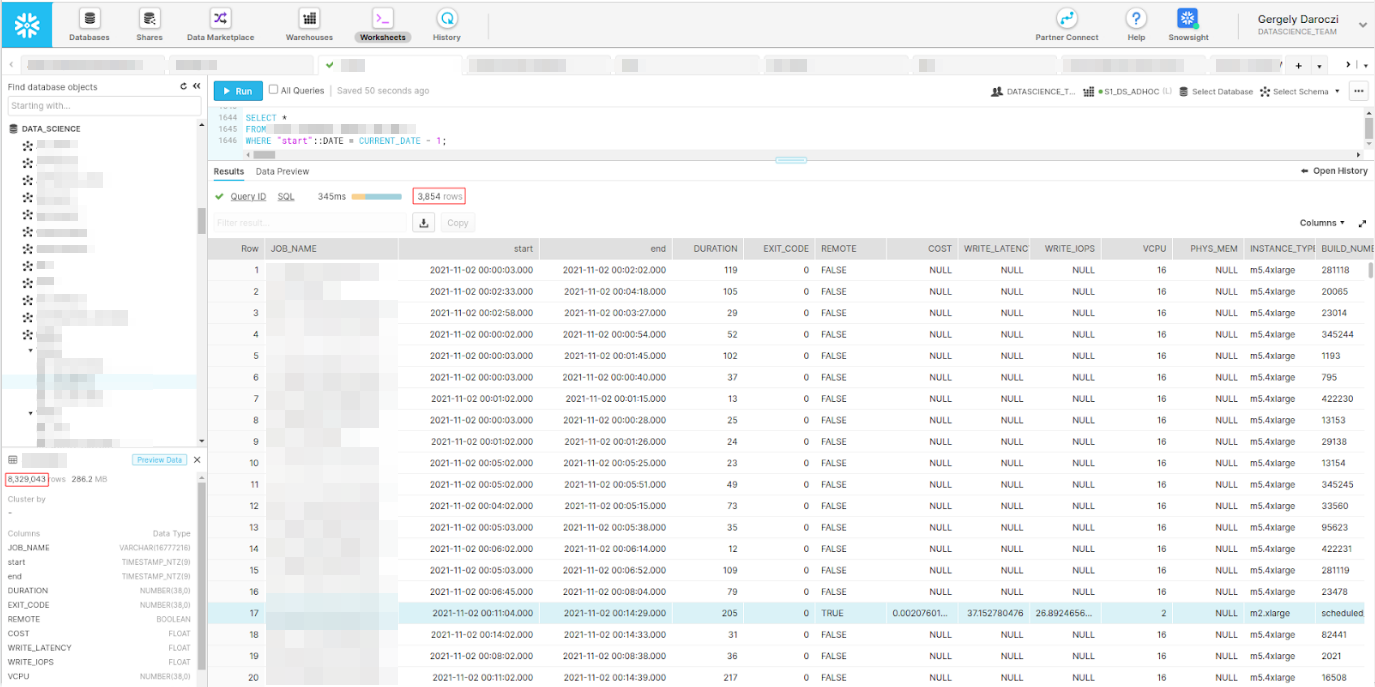
>>> from spare_cores import why

AWS ECS

AWS Batch
Kubernetes
>>> from spare_cores import why

Source: xkcd
>>> from spare_cores import why
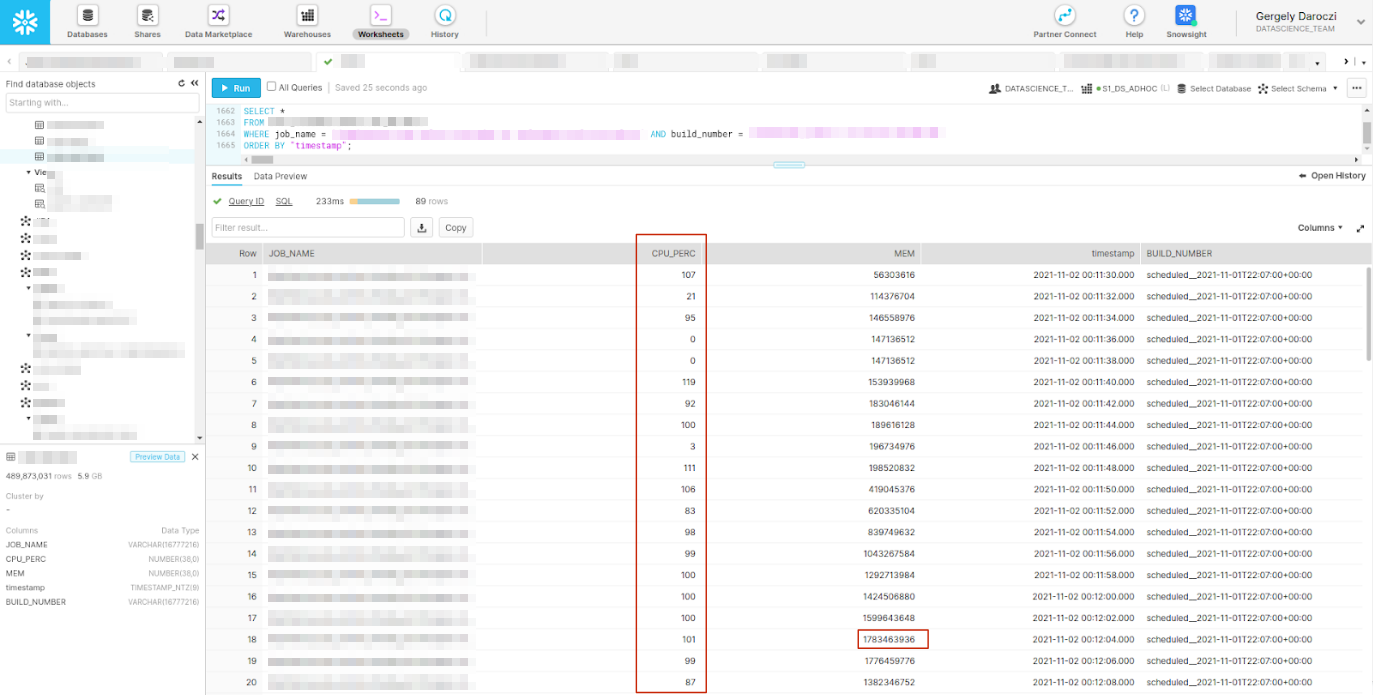
>>> from spare_cores import why
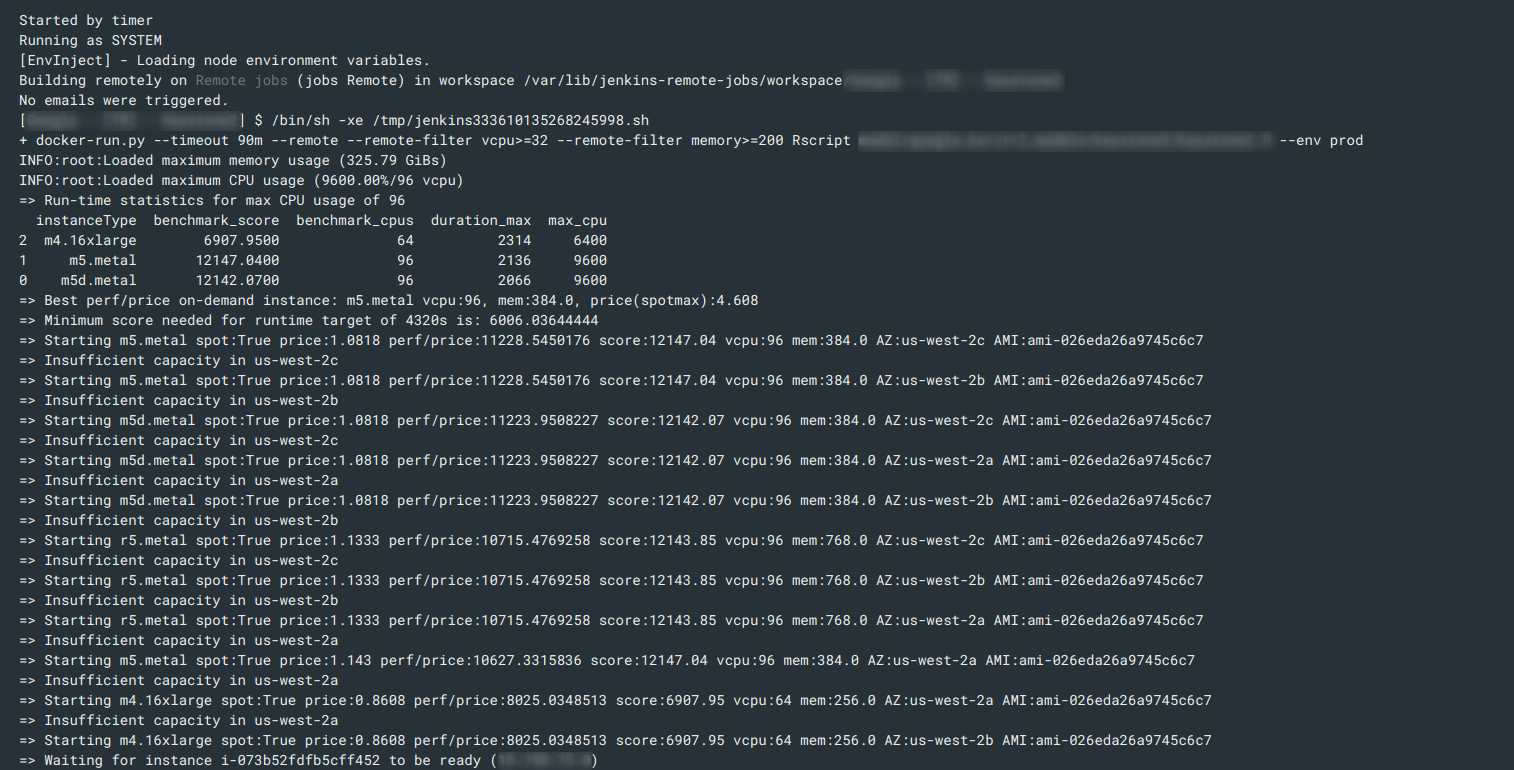
>>> from spare_cores import why

>>> from spare_cores import why

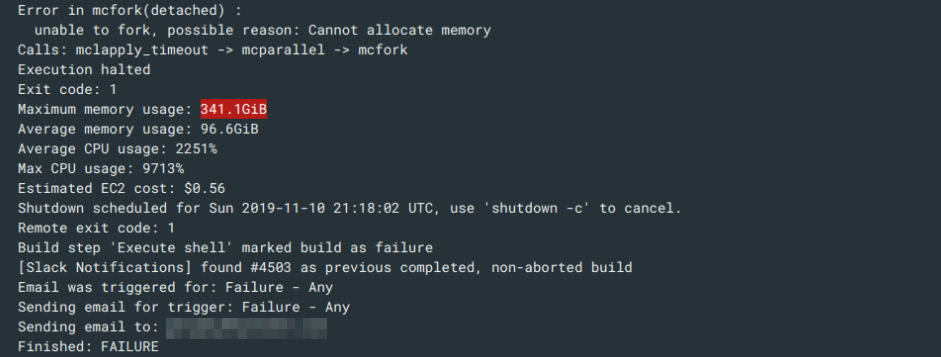
>>> from spare_cores import why
Other use-cases:
- stats/ML/AI model training,
- ETL pipelines,
- traditional CI/CD workflows for compiling and testing software,
- building Docker images,
- rendering images and videos,
- etc.
>>> from spare_cores import why

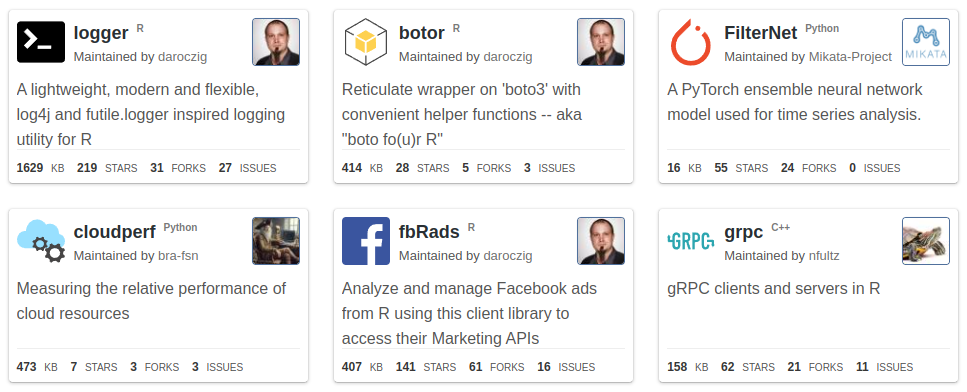
>>> from spare_cores import intro
- Open-source tools, database schemas and documentation to inspect and inventory cloud vendors and their compute resource offerings.
- Managed infrastructure, databases, APIs, SDKs, and web applications to make these data sources publicly accessible.
- Helpers to start and manage instances in your own environment.
- SaaS to run containers in a managed environment without direct vendor engagement.
>>> from spare_cores import intro
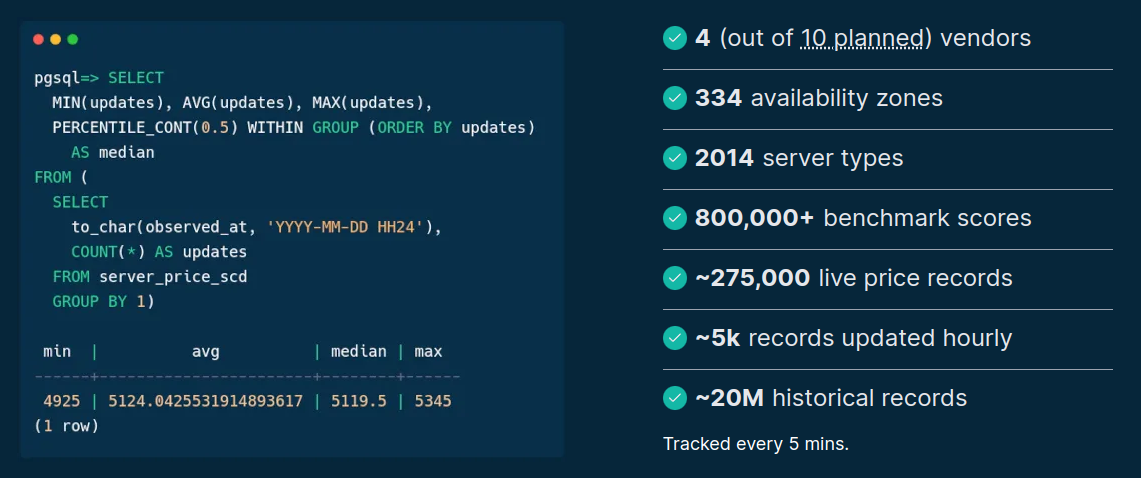
Source: sparecores.com
>>> from spare_cores import intro
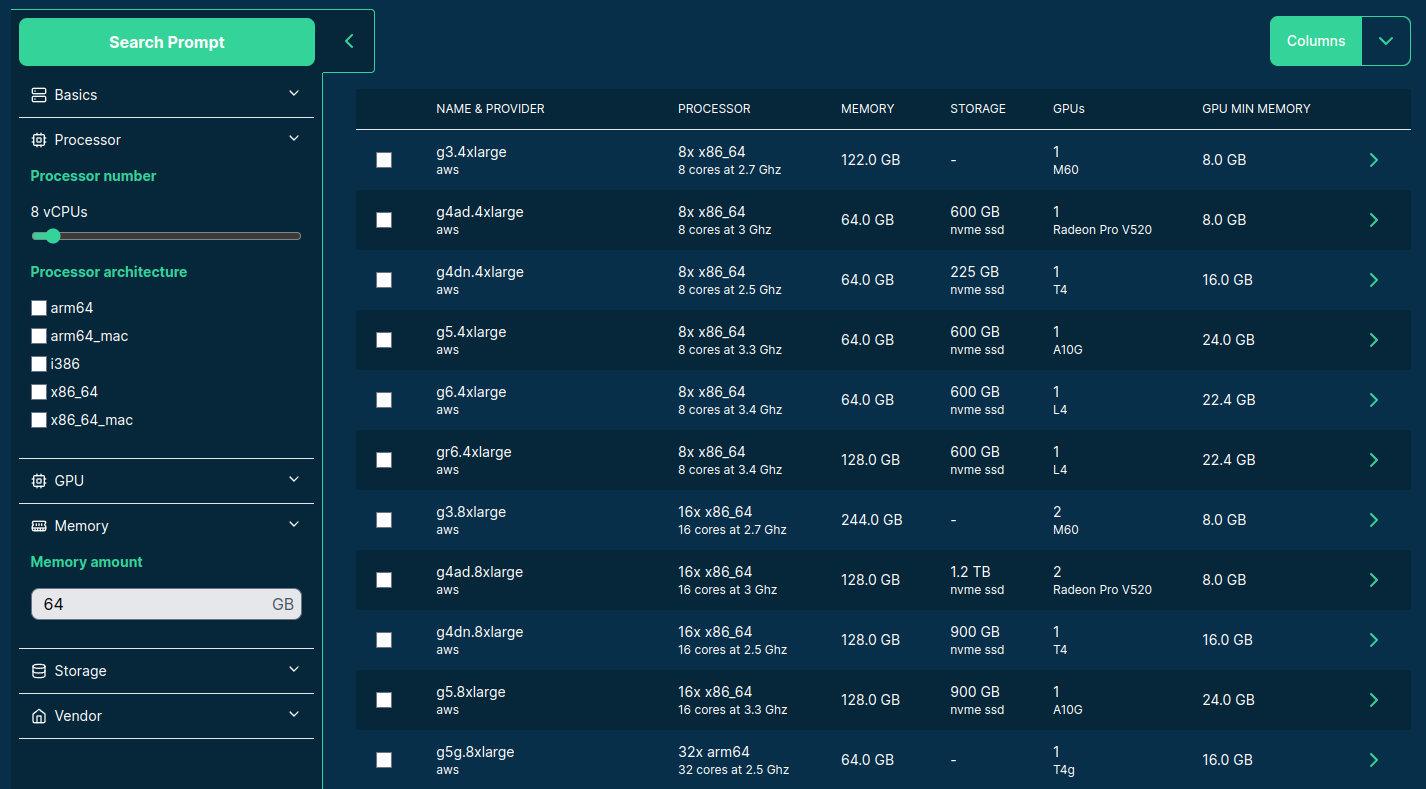
>>> from spare_cores import intro
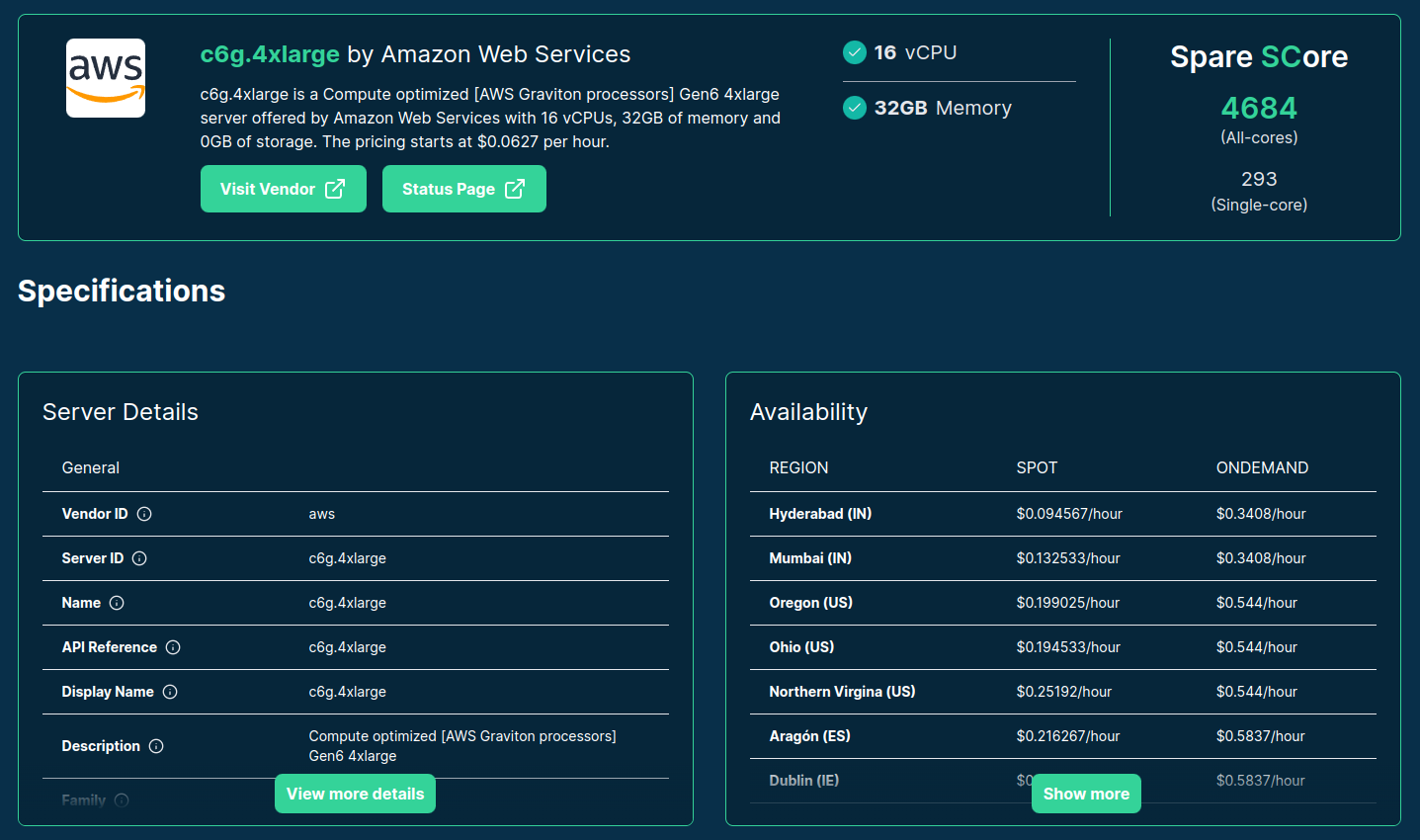
>>> from spare_cores import intro
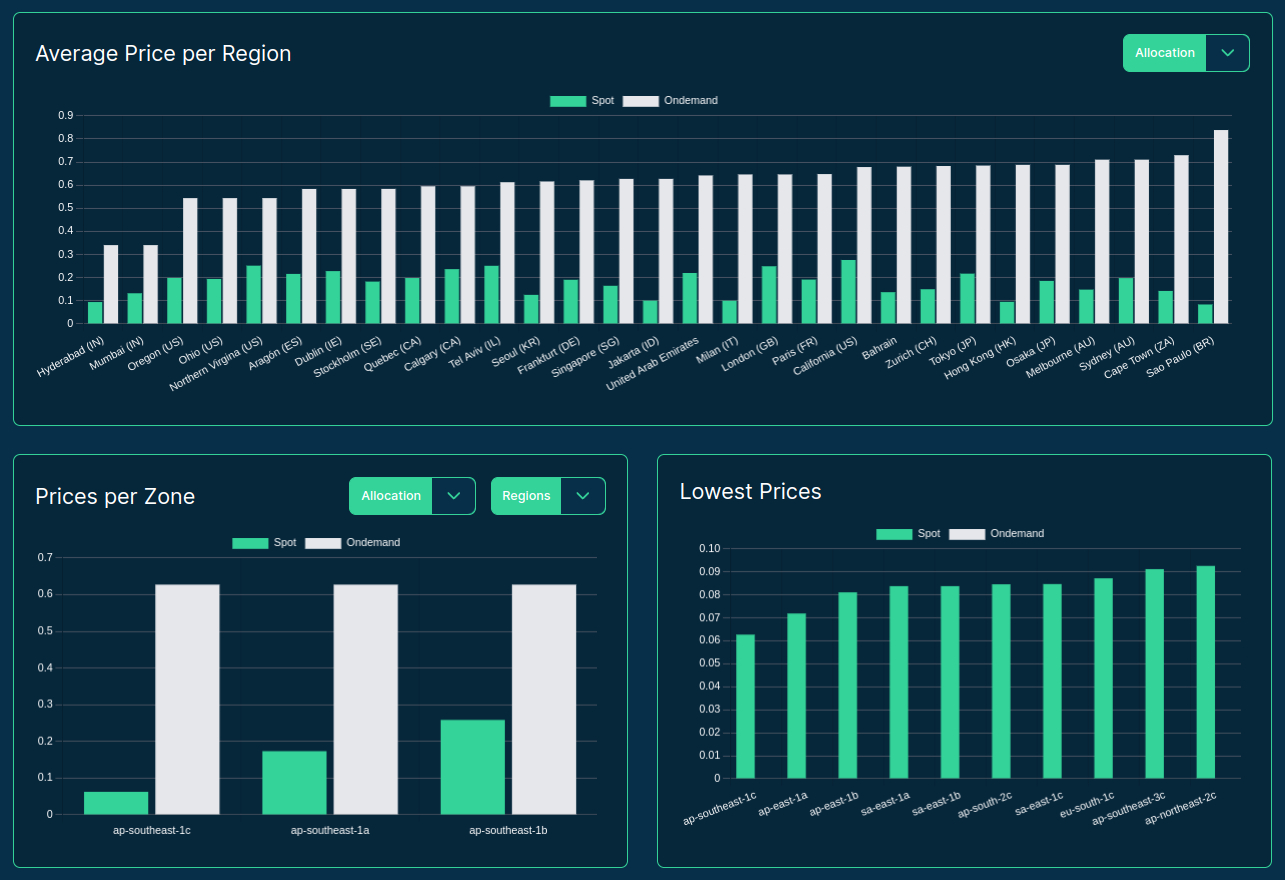
>>> from spare_cores import intro
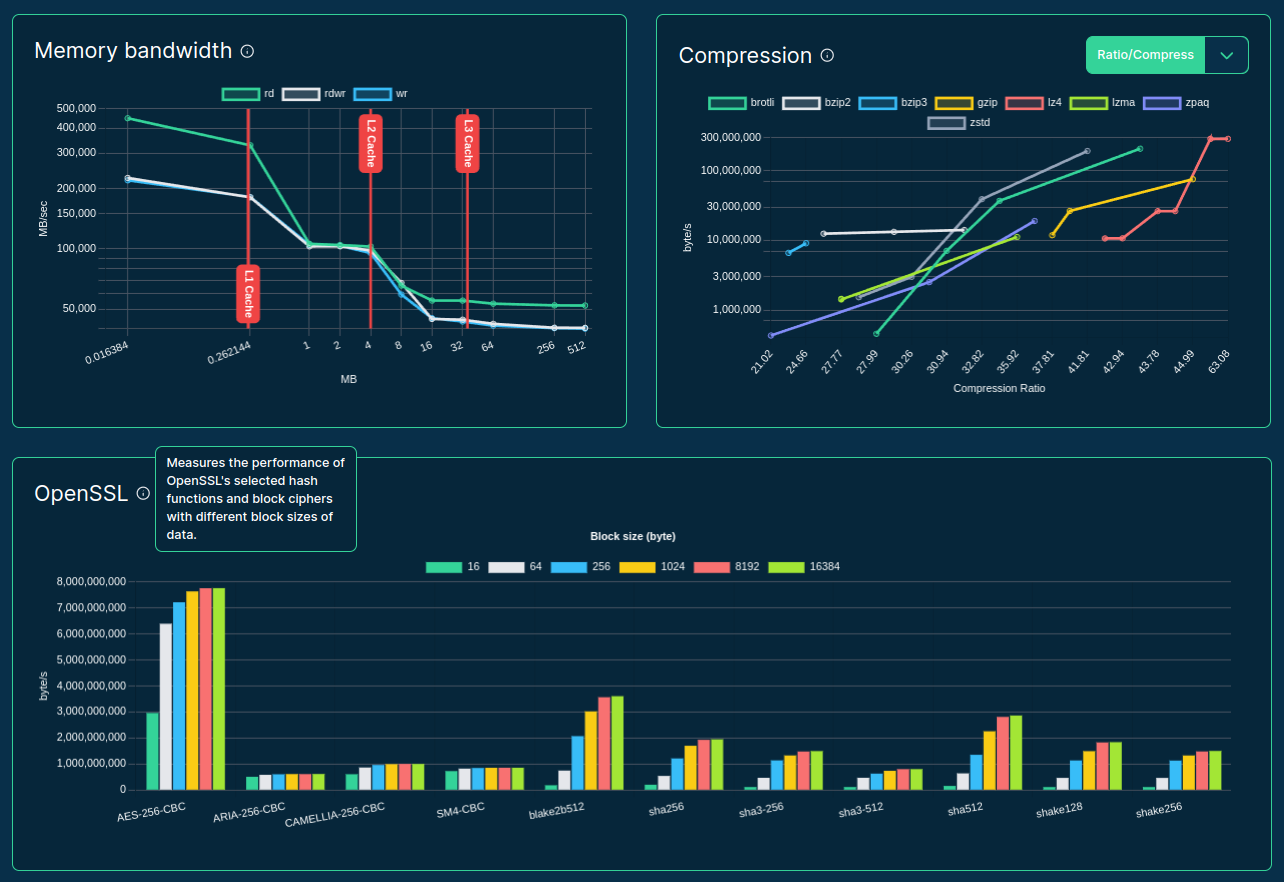
>>> from spare_cores import intro
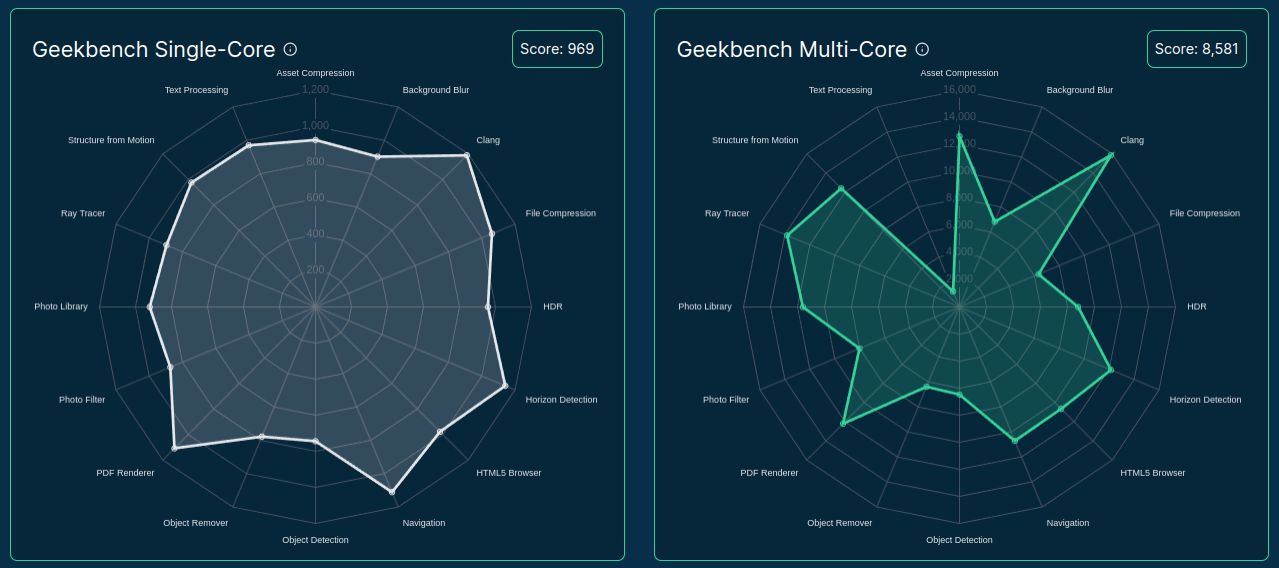
>>> from spare_cores import intro
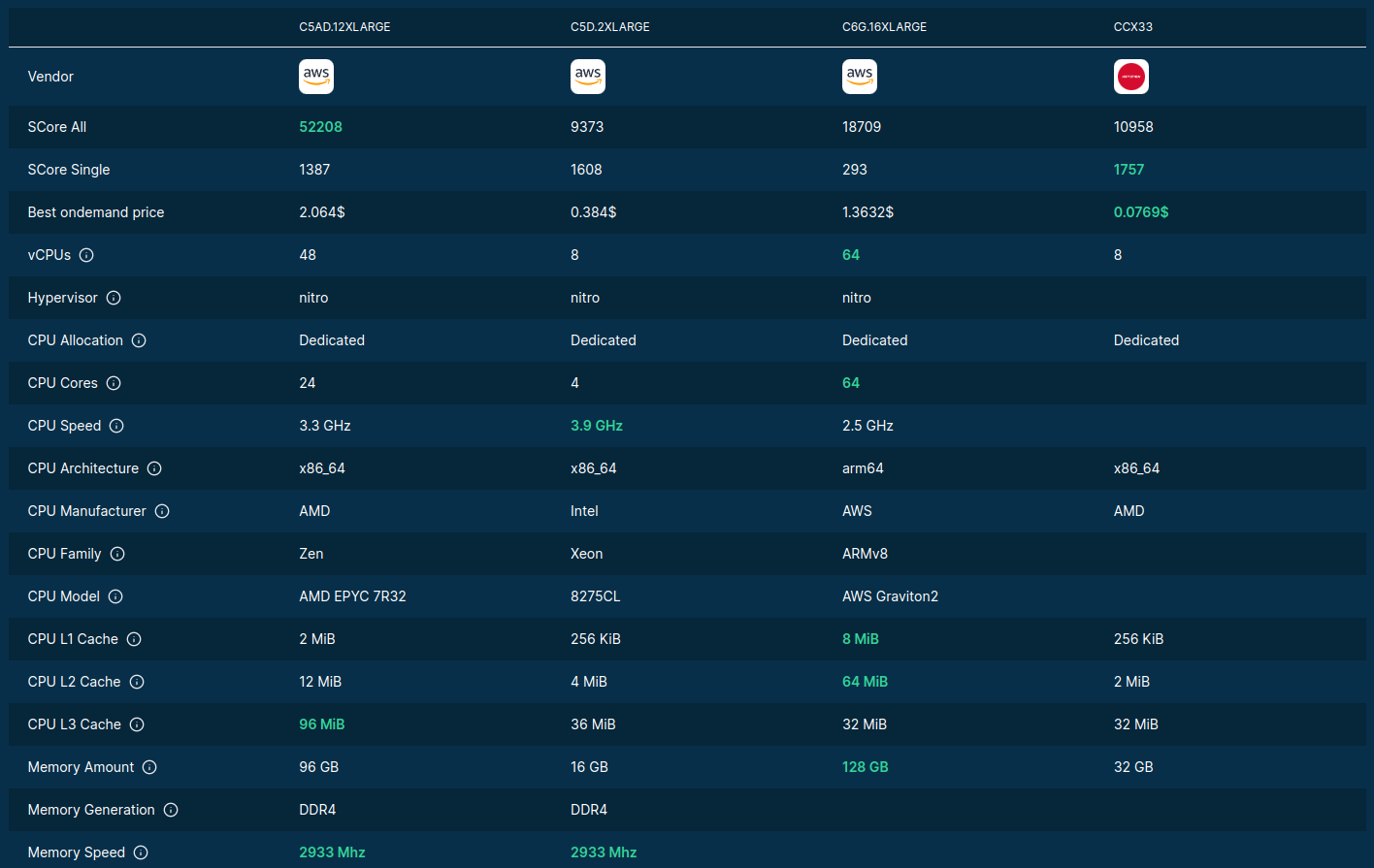
>>> from spare_cores import intro
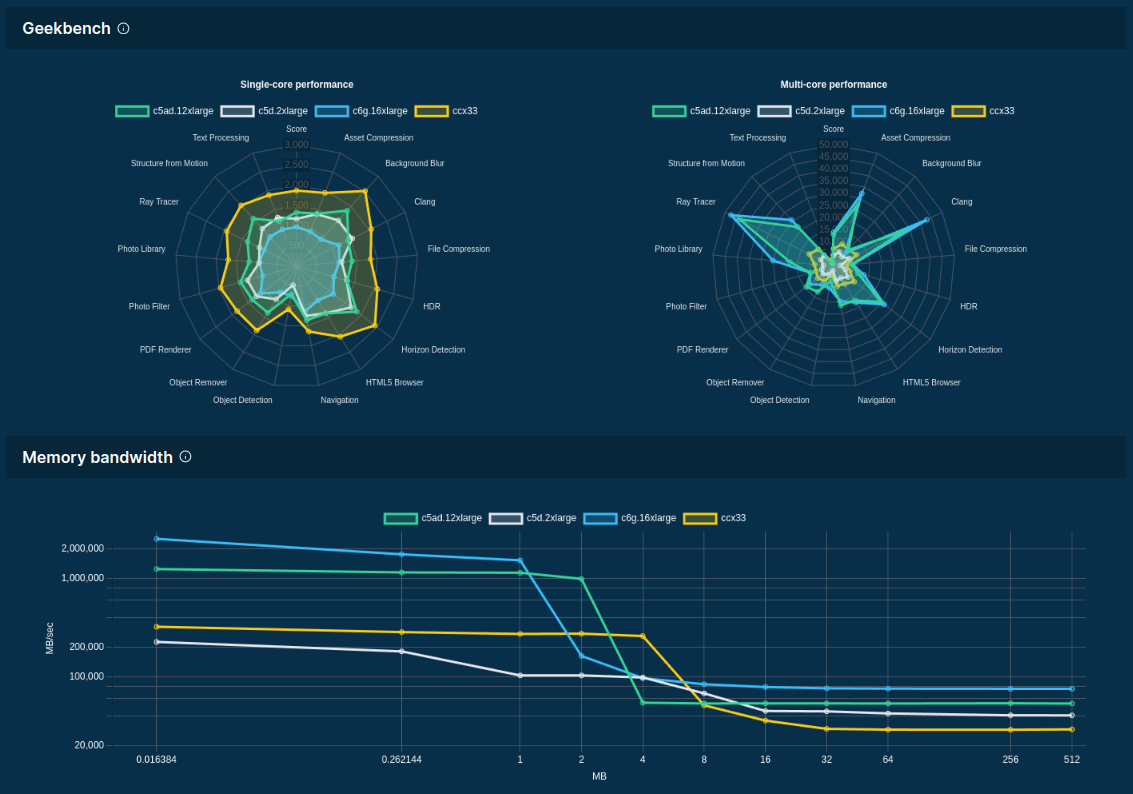
>>> from spare_cores import intro
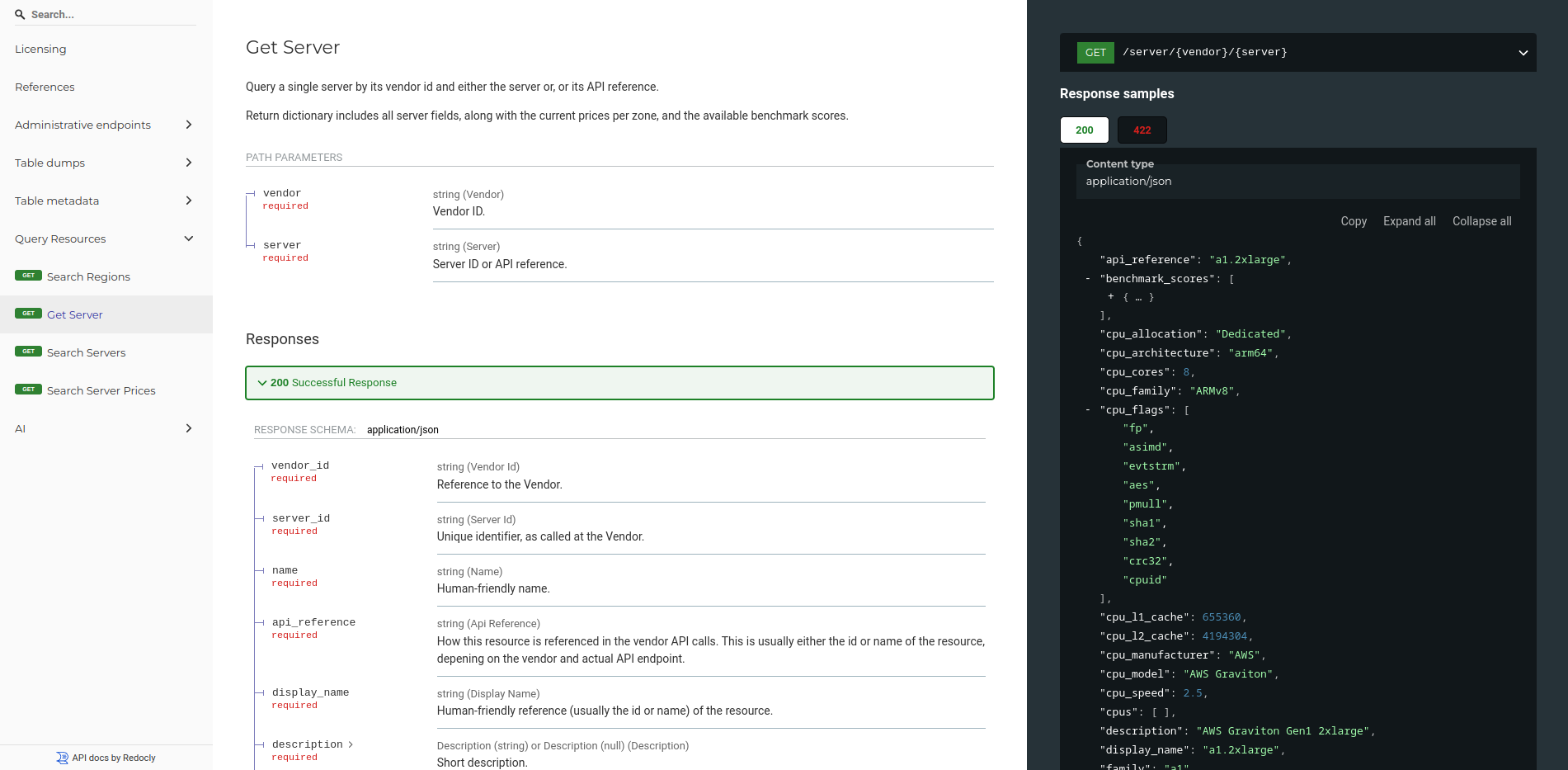
>>> from spare_cores import intro
>>> from rich import print as pp
>>> from sc_crawler.tables import Server
>>> from sqlmodel import create_engine, Session, select
>>> engine = create_engine("sqlite:///sc-data-all.db")
>>> session = Session(engine)
>>> server = session.exec(select(Server).where(Server.server_id == 'g4dn.xlarge')).one()
>>> pp(server)
Server(
server_id='g4dn.xlarge',
vendor_id='aws',
display_name='g4dn.xlarge',
api_reference='g4dn.xlarge',
name='g4dn.xlarge',
family='g4dn',
description='Graphics intensive [Instance store volumes] [Network and EBS optimized] Gen4 xlarge',
status=<Status.ACTIVE: 'active'>,
observed_at=datetime.datetime(2024, 6, 6, 10, 18, 4, 127254),
hypervisor='nitro',
vcpus=4,
cpu_cores=2,
cpu_allocation=<CpuAllocation.DEDICATED: 'Dedicated'>,
cpu_manufacturer='Intel',
cpu_family='Xeon',
cpu_model='8259CL',
cpu_architecture=<CpuArchitecture.X86_64: 'x86_64'>,
cpu_speed=3.5,
cpu_l1_cache=None,
cpu_l2_cache=None,
cpu_l3_cache=None,
cpu_flags=[],
memory_amount=16384,
memory_generation=<DdrGeneration.DDR4: 'DDR4'>,
memory_speed=3200,
memory_ecc=None,
gpu_count=1,
gpu_memory_min=16384,
gpu_memory_total=16384,
gpu_manufacturer='Nvidia',
gpu_family='Turing',
gpu_model='Tesla T4',
gpus=[
{
'manufacturer': 'Nvidia',
'family': 'Turing',
'model': 'Tesla T4',
'memory': 15360,
'firmware_version': '535.171.04',
'bios_version': '90.04.96.00.A0',
'graphics_clock': 1590,
'sm_clock': 1590,
'mem_clock': 5001,
'video_clock': 1470
}
],
storage_size=125,
storage_type=<StorageType.NVME_SSD: 'nvme ssd'>,
storages=[{'size': 125, 'storage_type': 'nvme ssd'}],
network_speed=5.0,
inbound_traffic=0.0,
outbound_traffic=0.0,
ipv4=0,
)>>> spare_cores.__dir__()
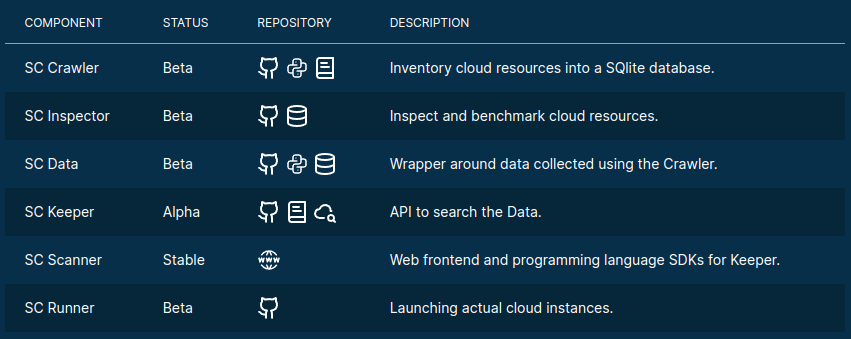
>>> spare_cores.challenges(“quotas”)
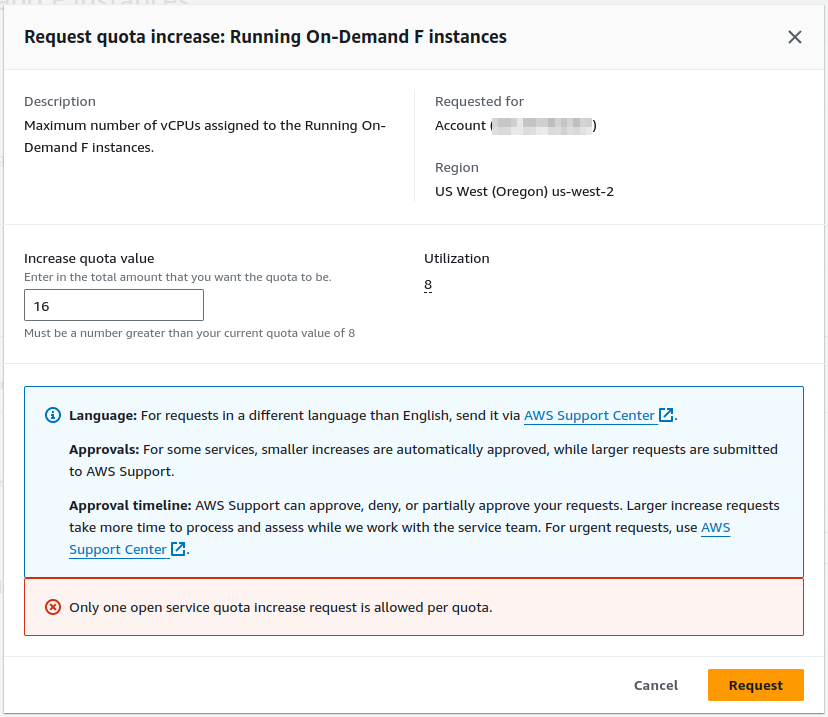
>>> spare_cores.challenges(“quotas”)

>>> spare_cores.challenges(“LLMs”)
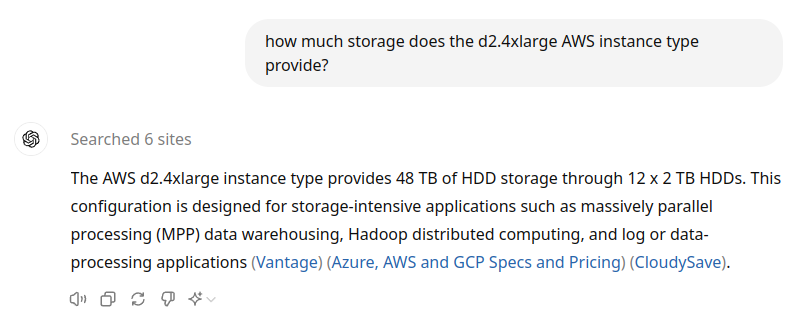
>>> spare_cores.challenges(“LLMs”)
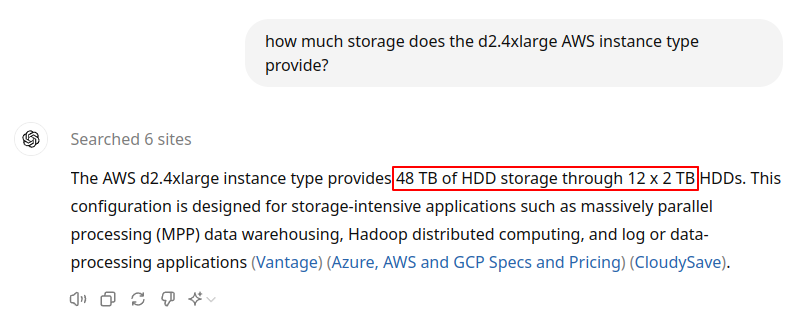
>>> spare_cores.challenges(“data”)

>>> from sc_crawler import pricing
- No way to find SKUs by filtering in the API call. Get all, search locally.
f1-microis one out of 2 instances with simple pricing.- For other instances, lookup SKUs for CPU + RAM and do the math.
- Match instance family with SKU via search in description,
e.g.
C2D.
- Except for
c2, which is called “Compute optimized”.
- And
m2is actually priced at a premium on the top ofm1.
- The
n1resource group is not CPU/RAM, butN1Standard, extract if it’s CPU or RAM price from description.
>>> import sc_data
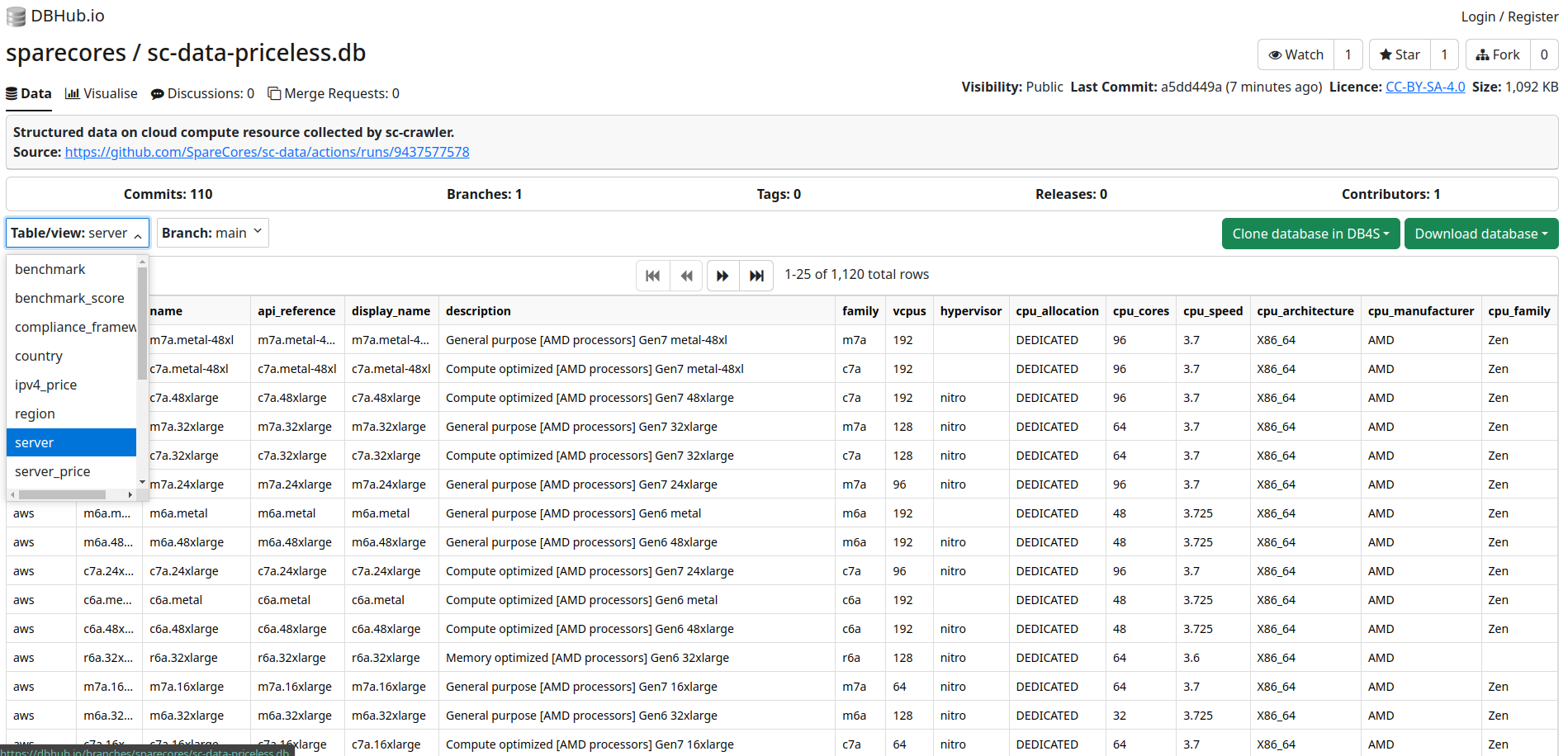
Source: dbhub.io/sparecores
>>> changelogs.get(“spare_cores”)
- Featured by the Programatic Engineer’s The Pulse
- Top post on the AWS subreddit
- 6 conferences in 5 countries (2024)
- New vendor: UpCloud
- Web update: Embed any Spare Cores chart as Iframe
- Web update: Custom list of servers for comparison
- Web update: Order and filter by any benchmark score
- New benchmarks: PassMark
>>> changelogs.get(“spare_cores”)
New benchmarks: LLM inference (
ppandtgup to 32k tokens)- SmolLM-135M.Q4_K_M.gguf (135 M params; 100 MB)
- Qwen1.5-0.5B-Chat.gguf (0.5 B params; 400 MB)
- gemma-2b.Q4_K_M.gguf (2B params; 1.5 GB)
- LLaMA-7b.gguf (7B params; 4 GB)
- phi-4-q4.gguf (14 B params; 9 GB)
- Llama-3.3-70B-Instruct-Q4_K_M.gguf (70 B params; 42 GB)
>>> from spare_cores import team
@bra-fsn
@palabola
@daroczig
>>> from spare_cores import team
@bra-fsn
Infrastructure and Python veteran.
@palabola
Guardian of the front-end and Node.js tools.
@daroczig
Hack of all trades, master of NaN.
>>> from spare_cores import support

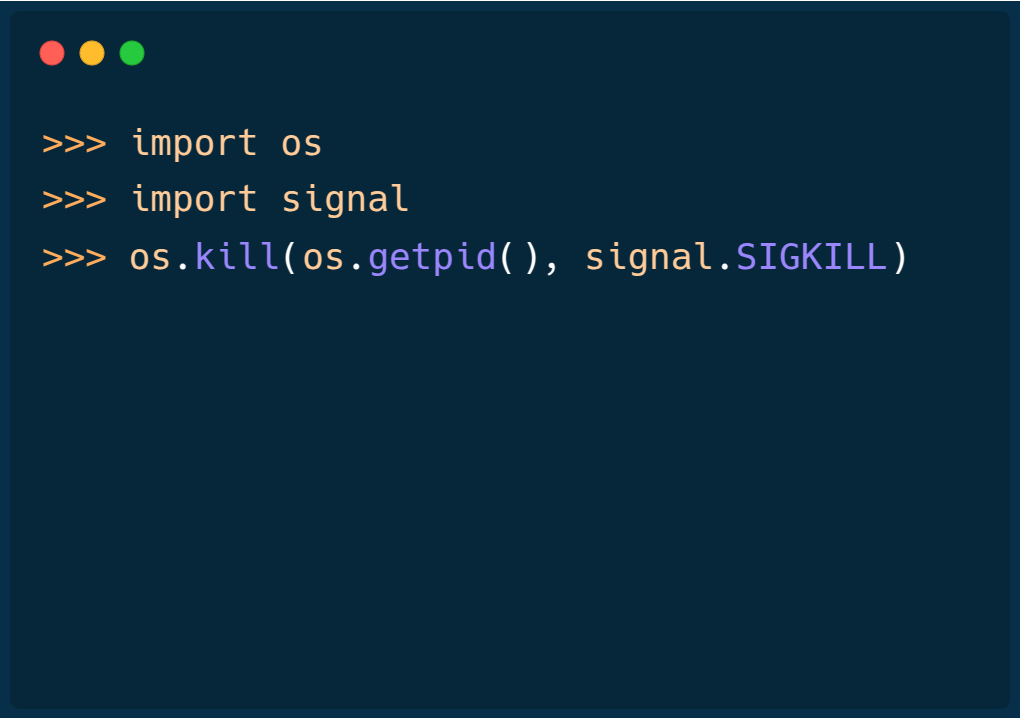
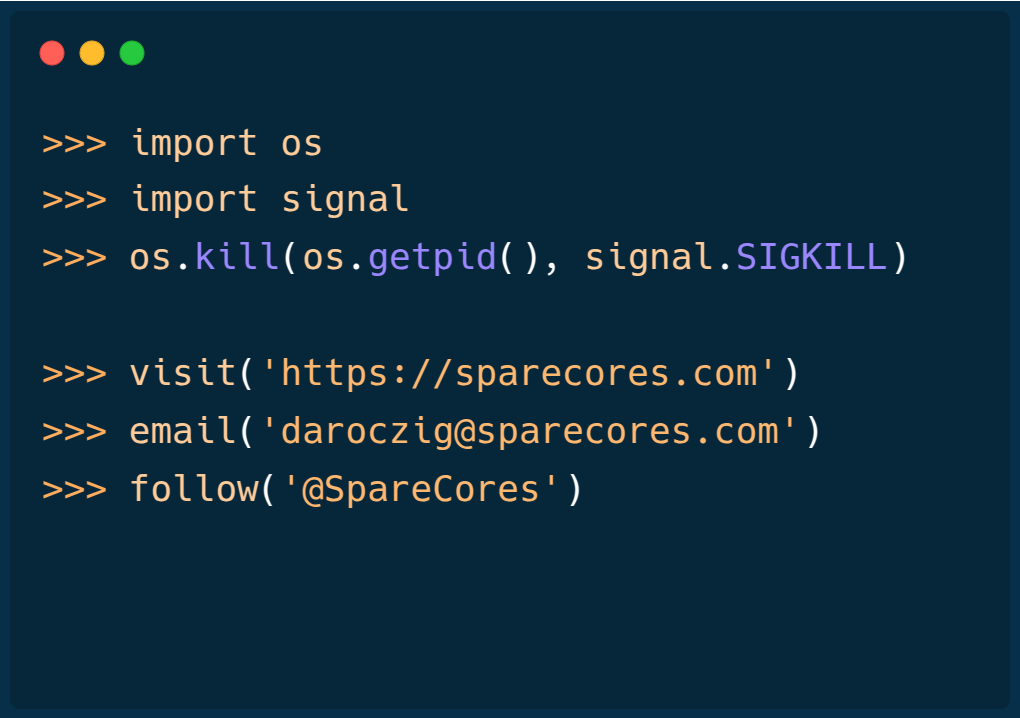
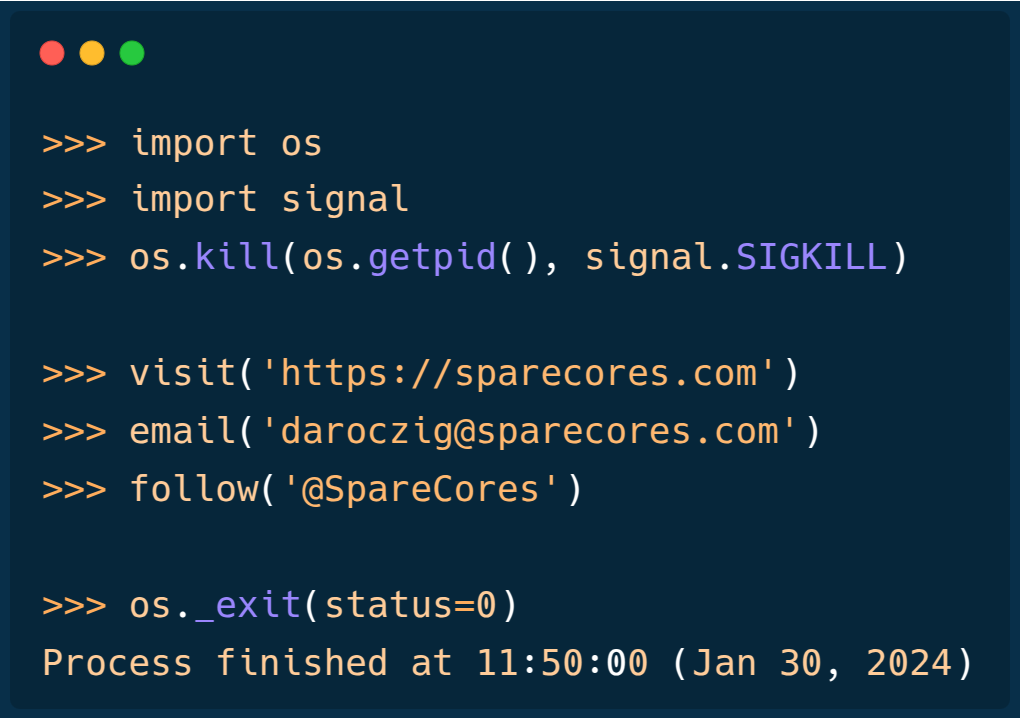
Slides: sparecores.com/talks